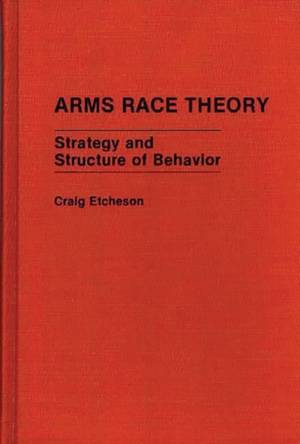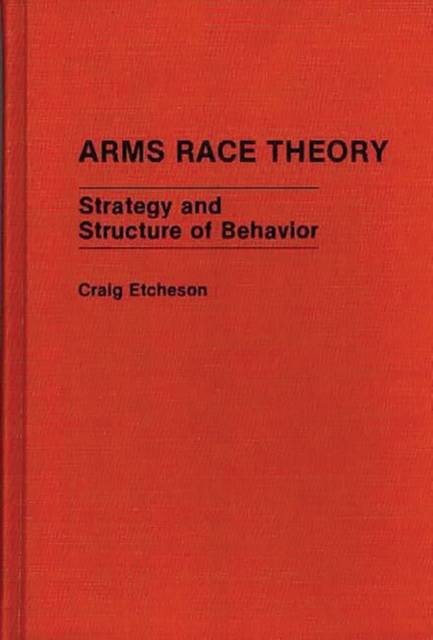
Bedankt voor het vertrouwen het afgelopen jaar! Om jou te bedanken bieden we GRATIS verzending (in België) aan op alles gedurende de hele maand januari.
- Afhalen na 1 uur in een winkel met voorraad
- Gratis thuislevering in België
- Ruim aanbod met 7 miljoen producten
Bedankt voor het vertrouwen het afgelopen jaar! Om jou te bedanken bieden we GRATIS verzending (in België) aan op alles gedurende de hele maand januari.
- Afhalen na 1 uur in een winkel met voorraad
- Gratis thuislevering in België
- Ruim aanbod met 7 miljoen producten
Zoeken
Omschrijving
For most of the twentieth century, social scientists have attempted to understand the causes of military competition. From this struggle has evolved the Richardson Tradition of Arms Race Analysis, a distinct body of scientific literature that uses a variety of mathematical techniques and theoretical ideas to solve the puzzle of what drives military interaction among nations. Etcheson explores this intellectual journey and projects the paths along which the Richardson Tradition must go if it is to obtain its objective: understanding and control of potentially unnecessary organized social violence.
Arms Race Theory examines thoroughly the literature of the Richardson Tradition, from the writings of Lewis Fry Richardson through the most recent attempts of his students to resolve the fundamental questions about interaction in arms races. Etcheson documents the application of the procedures of positive physical science to social problems and identifies the reasons why Richardson and his students have been frustrated in their efforts. According to the author, students of the Richardson Tradition adhere to an atomistic and reductionist perspective that denies the relevance of human values and intentions. He focuses on the idea of strategy as a gateway to an understanding of the social causes of arms accumulation. Etcheson prepares the way for a new phase in the Richardson Tradition by identifying new theoretical foci and methodological techniques. His analysis, coupled with the most comprehensive bibliography of the literature of the Richardson Tradition currently available, is a significant contribution to the growing body of scholarship in peace research and international relations theory.Specificaties
Betrokkenen
- Auteur(s):
- Uitgeverij:
Inhoud
- Aantal bladzijden:
- 253
- Taal:
- Engels
- Reeks:
Eigenschappen
- Productcode (EAN):
- 9780313262548
- Verschijningsdatum:
- 12/07/1989
- Uitvoering:
- Hardcover
- Formaat:
- Genaaid
- Afmetingen:
- 156 mm x 234 mm
- Gewicht:
- 544 g

Alleen bij Standaard Boekhandel
Beoordelingen
We publiceren alleen reviews die voldoen aan de voorwaarden voor reviews. Bekijk onze voorwaarden voor reviews.












